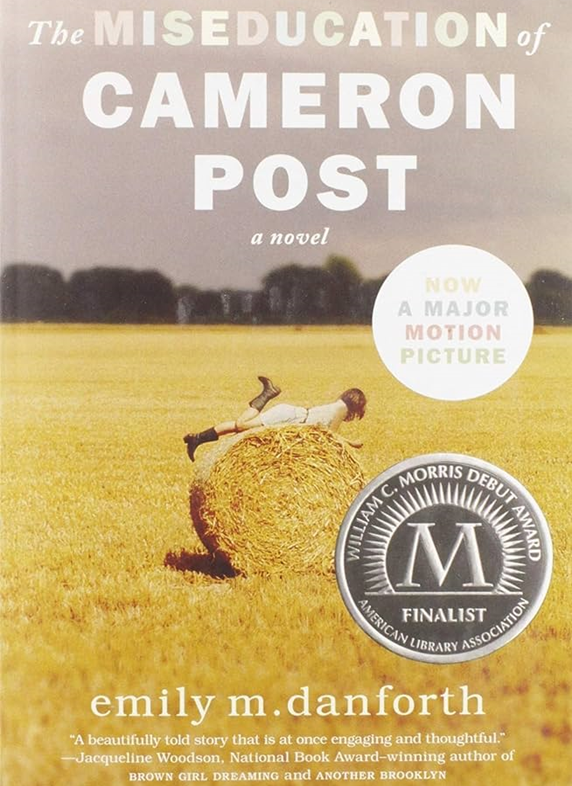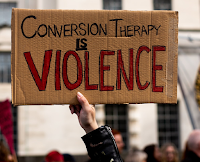Hunter Guttenplan, Verrazzano Class of 2024, completed major in Psychology and minors in English Literature and Political Science

I learned a lot about
conversion therapy with the assistance of my former English Professor, Harry
Thorne. I took his Coming of Age Narratives class, and we read a book called The
Miseducation of Cameron Post. The novel immediately captivated me. Reading
a young adult novel about mental health and psychotherapy was very enjoyable,
especially as a Psychology major. The novel was so enjoyable that I knew it was
exactly what I wanted to do for my capstone project. I could combine two of my
academic interests, English and Psychology.
The results I found in
the research were actually exactly as I expected. The representation of the oppression
of people with queer identities in The Miseducation of Cameron Post was supported
by real-world statistics. I learned a lot about Gender Dysphoria, therapeutic interventions
in relation to conversion therapy, the fact that people in the LGBTQIA+ community
are eight times more likely to report having attempted suicide, almost six
times more likely to report high levels of depression, more than three times as
likely to use illegal drugs, and are three times more likely to be at high risk
of HIV and other STDs. I also learned about the public opinion in the United
States regarding conversion therapy, and the influence of negative beliefs and
clinical competence on Lesbian, Gay, and Bisexual individuals.
One of the most
interesting parts in my opinion was the high economic burden of conversion
therapy. To be more precise, that economic burden is about nine billion dollars,
which is outrageous.
If I were to continue developing this project, I would research the difference in conversion therapy throughout the years, as well as look at countries other than the United States. That way I can broaden my research on the issue since it doesn’t just apply to our country. I would also look at the difference in how conversion therapy was done throughout the decades. For example, I assume that conversion therapy was done differently in 1975 than it is now, especially due to the fact that homosexuality was not as socially acceptable back then as it is now.
It was a pleasure to
work on this project under the guidance of Professor Thorne, and it was a
rewarding experience doing this capstone project for the Verrazzano Honors
Program.


No comments:
Post a Comment